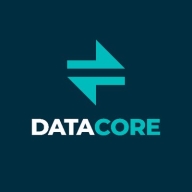


Dell ObjectScale and DataCore Swarm compete in the object storage market, each offering unique capabilities for data management. DataCore Swarm has an advantage in scalability and ease of management, making it a strong contender in environments requiring flexible and robust storage solutions, while Dell ObjectScale gains favor in high-availability environments due to its efficient data distribution strategies.
Features: Dell ObjectScale emphasizes integrated multi-cloud support, seamless scalability, and system reliability. DataCore Swarm highlights dynamic content replication, customizable metadata tags, and enhanced data control options.
Room for Improvement: Dell ObjectScale could benefit from simplifying its complex architecture to reduce the steep learning curve and improve user accessibility. DataCore Swarm may enhance its integration capabilities with third-party applications and optimize its customization options for broader industry applications.
Ease of Deployment and Customer Service: Dell ObjectScale offers streamlined deployment through automated provisioning and robust cloud deployment options but can be challenging due to its complex architecture. DataCore Swarm provides versatile deployment models with extensive API support, making it adaptable to diverse IT environments, complemented by responsive customer service.
Pricing and ROI: Dell ObjectScale's initial setup cost is competitive due to its scalable architecture, promising favorable returns over time. DataCore Swarm offers a cost-effective initial pricing model with significant ROI potential, thanks to its efficient data handling and resource optimization.
| Product | Market Share (%) |
|---|---|
| Dell ObjectScale | 5.9% |
| Pure Storage FlashBlade | 5.3% |
| DataCore Swarm | 1.1% |
| Other | 87.7% |


| Company Size | Count |
|---|---|
| Small Business | 11 |
| Midsize Enterprise | 11 |
| Large Enterprise | 21 |
| Company Size | Count |
|---|---|
| Small Business | 12 |
| Midsize Enterprise | 12 |
| Large Enterprise | 11 |
FlashBlade is the industry’s most advanced scale-out storage for unstructured data, powered by a modern, massively parallel architecture to consolidate complex data silos (like backup appliances and data lakes) and accelerate tomorrow’s discoveries and insights.
Swarm provides a platform for data protection, management, organization and search at massive scale. You no longer need to migrate data into disparate solutions for long-term preservation, delivery and analysis. Consolidate all files on Swarm, find the data you are looking for quickly, and reduce total cost of ownership by continuously evolving hardware and optimizing use of your resources.
Dell ObjectScale is a next-generation S3 object storage platform known for scalability, performance, and efficiency. It integrates with Dell EMC products, combining hardware and software for seamless user experience in the AI era.
Dell ObjectScale implements the S3 protocol, integrating smoothly with Dell EMC solutions like ISILON. Its architecture supports data compression and interoperates with multiple protocols for enhanced performance. Enterprise features include immutability, geo-replication, and user-friendly management. However, it needs better integration with other systems, enhanced security, and disaster recovery. Write performance and scalability improvements, competitive pricing, and documentation enhancements are key areas for progress. The interface could be more straightforward, with more remote management features and native analytics.
What features does Dell ObjectScale offer?Industries leverage Dell ObjectScale for cloud-based object storage, archiving, and backups. It's favored for unstructured data management, CCTV integration, and document archiving. Strong in data analytics, it integrates well with high-capacity applications, enhancing data retention strategies across fields.
We monitor all File and Object Storage reviews to prevent fraudulent reviews and keep review quality high. We do not post reviews by company employees or direct competitors. We validate each review for authenticity via cross-reference with LinkedIn, and personal follow-up with the reviewer when necessary.